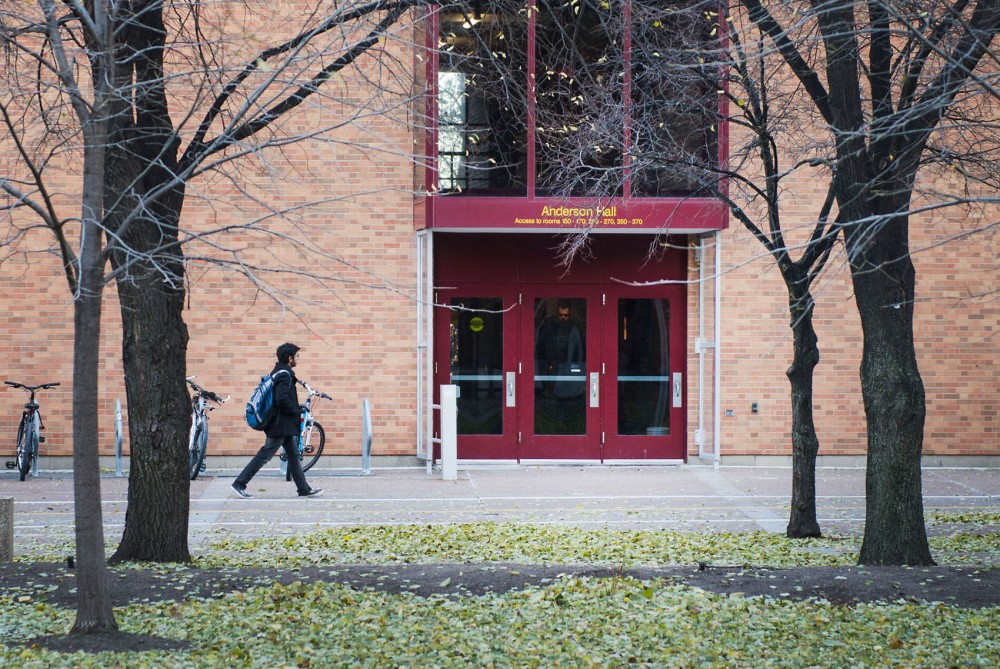A new sexual misconduct policy drafted by University of
Minnesota administrators aims to create a clearer picture of the reporting
process.
The policy consolidates several existing University
procedures and establishes an amnesty policy for drug and alcohol use. It has
been submitted for review by faculty and student government committees, and
officials plan to implement it in fall 2017.
Though committee members have expressed overall support,
some critique its pseudo-legal nature and the exclusion of some governing committees
in the drafting process.
School officials started working on the draft about a year
ago, said Office for Equal Opportunity and Affirmative Action Director and Title
IX Coordinator Tina Marisam.
The University has one policy for sexual harassment and another
for sexual assault, stalking and violence, and officials wanted to merge these
protocols into one comprehensive policy, she said.
“Creating one sexual misconduct policy is becoming a best
practice across many colleges and universities,” she said.
Additionally, the University has agreed with the U.S. Office
for Civil Rights to merge the policies for easier accessibility, she said.
At the end of last month, the University sent the draft to
the OCR and was in the final stages of their involvement with the office, she
said.
There are a few new provisions in the draft, including more specific
definitions of sexual assault, sexual contact and coercion, Marisam said.
Most changes to the policy come from existing procedures
that the EOAA already followed.
For instance, officials would usually grant amnesty to
individuals if drug or alcohol violations came to light during a sexual assault
investigation, but now the policy explicitly grants individuals this amnesty.
“We don’t want to
deter reporters,” Marisam said. “We also want witnesses and respondents to feel
like they can speak candidly during our investigations.”
The updated language also includes ideal timeframes for
officials to complete certain steps in the policy: five days for initial
assessments of reports, and 60 days to finish investigations.
The draft was presented to the University Faculty
Consultative Committee last month for discussion. Faculty were generally
supportive overall, said FCC Chair Colin Campbell, but some members worry about
what he called the “quasi-legal” appearance of the policy.
Many don’t understand that the University policy isn’t tied
to any kind of criminal investigation, which can cause confusion when the
University doesn’t follow certain aspects of typical criminal proceedings,
Campbell said.
For example, the draft states that people who don’t
cooperate with an investigation could be punished, he said. Some in the FCC
worry this appears to be the same as being forced to testify against oneself,
he said.
“The thing that
worries me about policies like this is that they often blur the line between
what is in the criminal realm and what is misconduct according to the rules of
our academic community,” said FCC Vice Chair Joseph Konstan.
Konstan said he wants administrators to communicate more
clearly to the public that University investigators have their own set of
conduct standards separate from the law, which might increase satisfaction with
the policies.
Once the draft gains approval by committees, administrators
will open it to a 30-day public comment period.
On Jan. 30, the Council of Graduate Students passed a
resolution disapproving the drafting process and some of the policy’s
previsions.
Over break, COGS heard about the draft and requested a copy.
Administrators promptly sent one over and asked for feedback within 16 days into
the semester, which wasn’t sufficient time to gather feedback from students,
said COGS officer Lauren Mitchell.
“We … saw a consensus around the idea that we should be
offered a full opportunity to respond to policies that are brought to use for
consultation,” she said.
Some students feel the administration doesn’t seek student
feedback in a meaningful way, she said.
“Talking with
students is kind of like icing on the cake. They want to show that they have
taken student input, but it’s so late in the process that none of those changes
can actually be made,” she said.
The resolution requested that administrators inform members
of the University of new policy drafts earlier on and consult more with
affected parties. The document also asks
for an “iterative cycle of readings, feedback and revisions” during the
drafting process.
Graduate students have also expressed concern about language
in the policy stating that an investigation can take place without the
reporter’s consent, Mitchell said.
If that’s justified, there should be language in the policy explaining
why, she said.
Additionally, a new clause mandates that all University
employees report knowledge of a sexual misconduct case — unless they learn of
it through serving a patient or client.
The COGS resolution expresses concern that this clause would
apply to graduate students working as teaching or research assistants, which
could discourage open discussions among peers
about their experiences.


